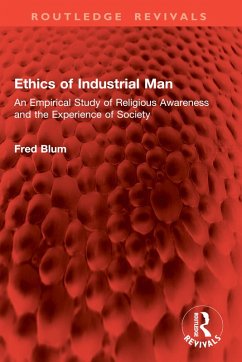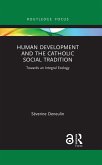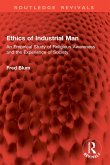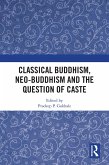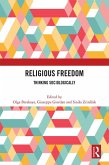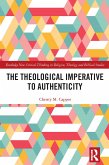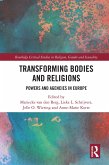First published in 1970, Ethics of Industrial Man explores the interrelationship between people's experience of a deeper reality of life, their awareness of society and their participation in it. It is usually assumed that religion has lost its impact on the daily life of man. This is true, inasmuch as most people live their working lives divorced from religiously grounded ethics. But the author shows that it ceases to be true if we explore the significance of the universal ground in which all religious awareness and every social order is rooted. Using intensive interviews in Great Britain and the United States over a number of years, the author gives empirical evidence that the ethical impulse is not absent but is thwarted by the absence of bridges between the socio-economic sphere of life and people's ethical awareness. Decisive in this connection is the confusion between what is universal and what is historically specific. This confusion, the author believes, underlies the apathy, the sense of powerlessness, the prevalence of a false consciousness, the decline of traditional religious forms. It is, he concludes, the core of the ethical corrosion of our time.
Dieser Download kann aus rechtlichen Gründen nur mit Rechnungsadresse in A, B, BG, CY, CZ, D, DK, EW, E, FIN, F, GR, HR, H, IRL, I, LT, L, LR, M, NL, PL, P, R, S, SLO, SK ausgeliefert werden.

